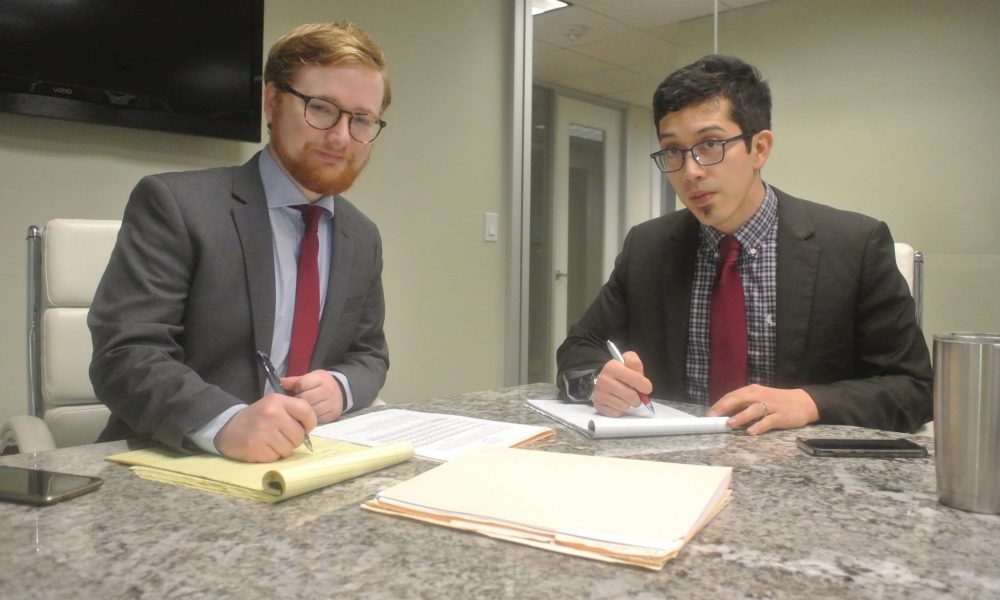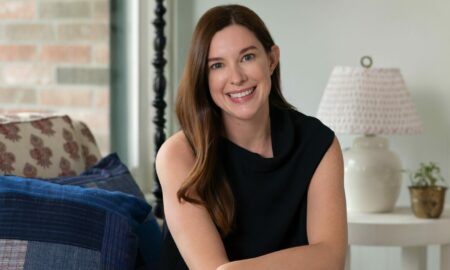

Today we’d like to introduce you to MacKenzie Dunham.
MacKenzie, let’s start with your story. We’d love to hear how you got started and how the journey has been so far.
When I was ten, my parents divorced. I don’t think any of us really saw it coming. My brothers and I were heartbroken. Our worlds were completely changed in the fraction of a second. My brother and I moved to the United States where I had to adapt to the new surroundings. I had to deal with a set of changes over which I had no control. After the divorce, I saw less and less of my dad. Not because of him, but because distance made the visits impractical. He lives in Canada.
At the time, I was all too aware of the role my parent’s attorneys played during this life-changing transition for all of us. My mother’s attorney made the transition as smooth as possible. It was with her guidance that the entire process ended as quickly as it started. Still, my parent’s divorce changed the course of my life. That was the moment when I knew I wanted to be an attorney. What I do as an attorney affects people’s lives, money, and their families.
The ability to help people through the toughest time in their lives is just one of the many privileges of being an attorney. It’s why I love what I do. I started Access Justice Houston because of the things I started to see while I was in law school. I had worked at a variety of different firms, attended several legal conferences and conversed with hundreds of lawyers and clients. Every lawyer with whom I talked seemed to relay a similar message, “the biggest obstacle in law practice is finding clients who pay.”
On the flip side, most clients complained that lawyers “would not return phone calls” or “are simply way too expensive.” I think all of these concerns are more of a symptom of our legal system than anything else. The court’s system in Texas was never designed to be affordable, and most attorneys simply don’t have the time to communicate with their clients as effectively as they could. My Co-Founder, Doug Evans, and I sought to change this problem by starting our low-bono organization.
Access Justice Houston is able to address some of these problems. First, we found that a lot of folks simply could not afford to pay for the going hourly rate of $250 an hour for an attorney. These folks tried to find a pro-bono attorney through legal aid providers but learned the hard way that there was no help for people who weren’t the poorest of the poor — folks who made more than $15,000 a year. Instead, these people were often representing themselves, often to their detriment.
We tried to find as many ways to reduce our fees that we could. Technology was a lifesaver. We automated as much as possible to make things less time-consuming. In the end, we found that we could reduce our rates to a much more affordable rate. We reduced the rate our clients pay to match their household income. Thus, in the end, they could pay something that’s actually affordable to them. Second, we tried to make the entire legal process much more collaborative — lawyers working with clients rather than leaving the clients in the dark.
We try our best to return each and every phone call within a reasonable time. Our clients know that if they need to see us after hours or make reasonable accommodations, they can just ask us. When you work for middle-class Texans, who have shifts that constantly change every week, our job is to make sure that we are as accessible as possible.
When you can’t find a lawyer through legal aid, or a private bar attorney, Access Justice Houston is there to pick up the slack. When we started our organization a year ago, we thought of the corniest slogan possible: “lawyers for the rest of us.” Now that slogan is becoming more and more our mission because at the end of the day we want to help give people the option to have an attorney that doesn’t bankrupt them with fees.
We’re always bombarded by how great it is to pursue your passion, etc. – but we’ve spoken with enough people to know that it’s not always easy. Overall, would you say things have been easy for you?
Starting an organization from scratch is kind of scary if you’ve never done it before.
There’s always uncertainty to it, whether you’d be able to afford your organization’s expenses the next month, etc. The first six months were kind of like that, getting the word out to other organizations and people in the community that we were available to help was kind of slow at first.
However, that process all started to change once people in the community started to realize we did good work, and we did it for a realistically affordable rate. The biggest struggle now is the immense need in our community for legal services, especially in family law matters. I’d love the opportunity to expand our organization and hire more attorneys to keep up with this demand, but we’re not quite there yet.
The same struggle is true of the counties that we can’t serve yet, mainly due to distance. There’s a great need for low-cost legal work in rural counties, but getting out there proves problematic. Technology can solve some of the issues, but we’ve not quite figured out how to effectively bring our services out to the rural counties.
So let’s switch gears a bit and go into the Access Justice Houston story. Tell us more about the business.
Access Justice Houston is a low-bono nonprofit. We help people who can’t get a pro-bono attorney from legal aid because they make too much money (15k a year) but can’t afford a private bar attorney. In Harris County, this “donut hole” in the legal market is about 72% of family law cases. In general, these folks end up representing themselves without the help of legal counsel. We refer to representing yourself as “pro-se.”
Pro-se is great if you’re clever enough to understand what lawyers learn in three years in however long your legal case takes, but most people need help understanding our complicated legal system. We started Access Justice Houston to meet the need for legal services at affordable rates. We match the reduced rate the client pays to what the client’s income is, our sliding scale is anywhere from 30-60% of the market rate for an attorney.
Our organization started helping out where the need was the greatest, namely family law, criminal defense, and some immigration and landlord-tenant work. To date, I’m probably the proudest of the fact that our gamble worked. No one had ever tried a sliding scale non-profit in Houston before. Now we’re the largest non-profit of our kind in Texas, having saved our clients over $175,000 this past year.
We’re also the only organization that can help the vast majority of the folks that come our way. Because our income scale goes all the way up to 400% of the federal poverty line, we are able to help those clients of modest means who make some money, but can’t afford market rates for attorneys. Unfortunately legal aid can’t help these same people, not because they don’t want to, but because the federal and state funding won’t let them. Our practice, called low-bono, has been used effectively in other industries like medicine to bring services to people who otherwise would go without. Much like legal aid we can’t give our clients a free lawyer, but we can substantially reduce the cost to a point that legal services become realistically affordable. So that’s what we did.
Has luck played a meaningful role in your life and business?
Luck has a lot to do with our success and timing is everything. Timing helped immensely in how successful we’ve become with our organization. The year prior to starting our organization, the Texas supreme court had just released a report on the Access to Justice Gap in Texas. The Access to Justice Gap is the very issue we’re trying to solve with our organization. We’ve been able to get support and opportunities we probably would not have ever received before because of this new found awareness from the Texas Supreme court. We’ve also been lucky in that we were able to build our organization on the shoulders of those that came before us. There’s other non-profits just like ours all across the United States. We were able to collaborate with them to figure out what best practices we should adopt, and how to make everything work like a well-oiled machine. If we had started 3-4 years earlier I don’t think we would have had that same opportunity.
Contact Info:
- Address: 701 San Jacinto St #52820, Houston, TX 77052
- Website: https://accessjusticehouston.org
- Phone: 8327726743
- Email: Mdunham@accessjusticehouston.org
- Facebook: https://www.facebook.com/Accessjusticehouston




Image Credit:
Photographer: John Hwang & Caite Evans
Getting in touch: VoyageHouston is built on recommendations from the community; it’s how we uncover hidden gems, so if you know someone who deserves recognition please let us know here.

















